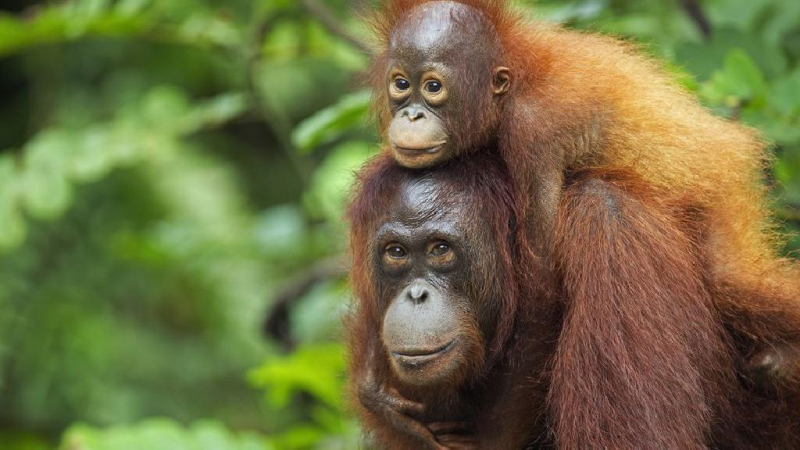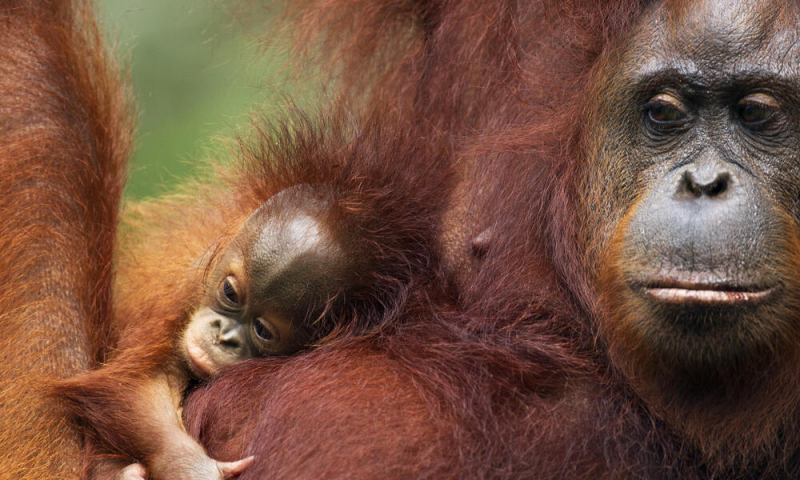Orangutan
Orangutans are great apes native to the rainforests of Indonesia and Malaysia. They are now found only in parts of Borneo and Sumatra, but during the Pleistocene, they ranged throughout Southeast Asia and South China. One of the most intelligent ape species is the orangutan. They make intricate sleeping nests out of branches and other vegetation each night, using a variety of specialized tools. The apes' capacity for learning has been thoroughly investigated. Within populations, there might be distinct cultures.
Orangutans spend most of their time in trees, making them the most arboreal of the great apes. Their bodies are covered in reddish-brown hair, and their arms and legs are proportionately long and short. Male adults often weigh 75 kg, whereas female adults typically weigh 37 kg. Younger subordinate men do not, and they more closely resemble adult females. Dominant adult males grow characteristic cheek pads or flanges and make extended cries that entice females and frighten competitors. Of all the great apes, orangutans are the most isolated; social connections typically form between mothers and their dependent children. The majority of an orangutan's diet consists of fruit, though they also eat foliage, bark, honey, insects, and bird eggs. Both in the wild and in captivity, they have a lifespan of over 30 years.












